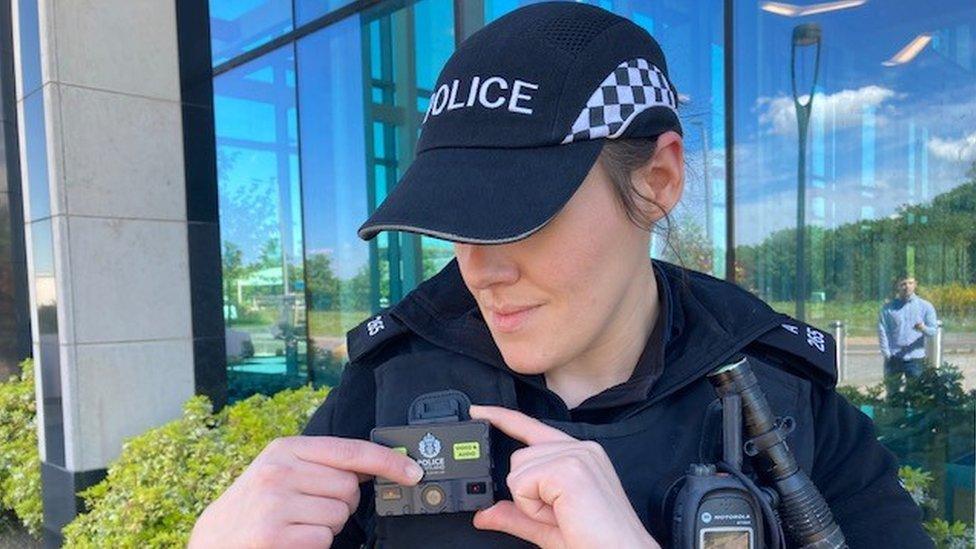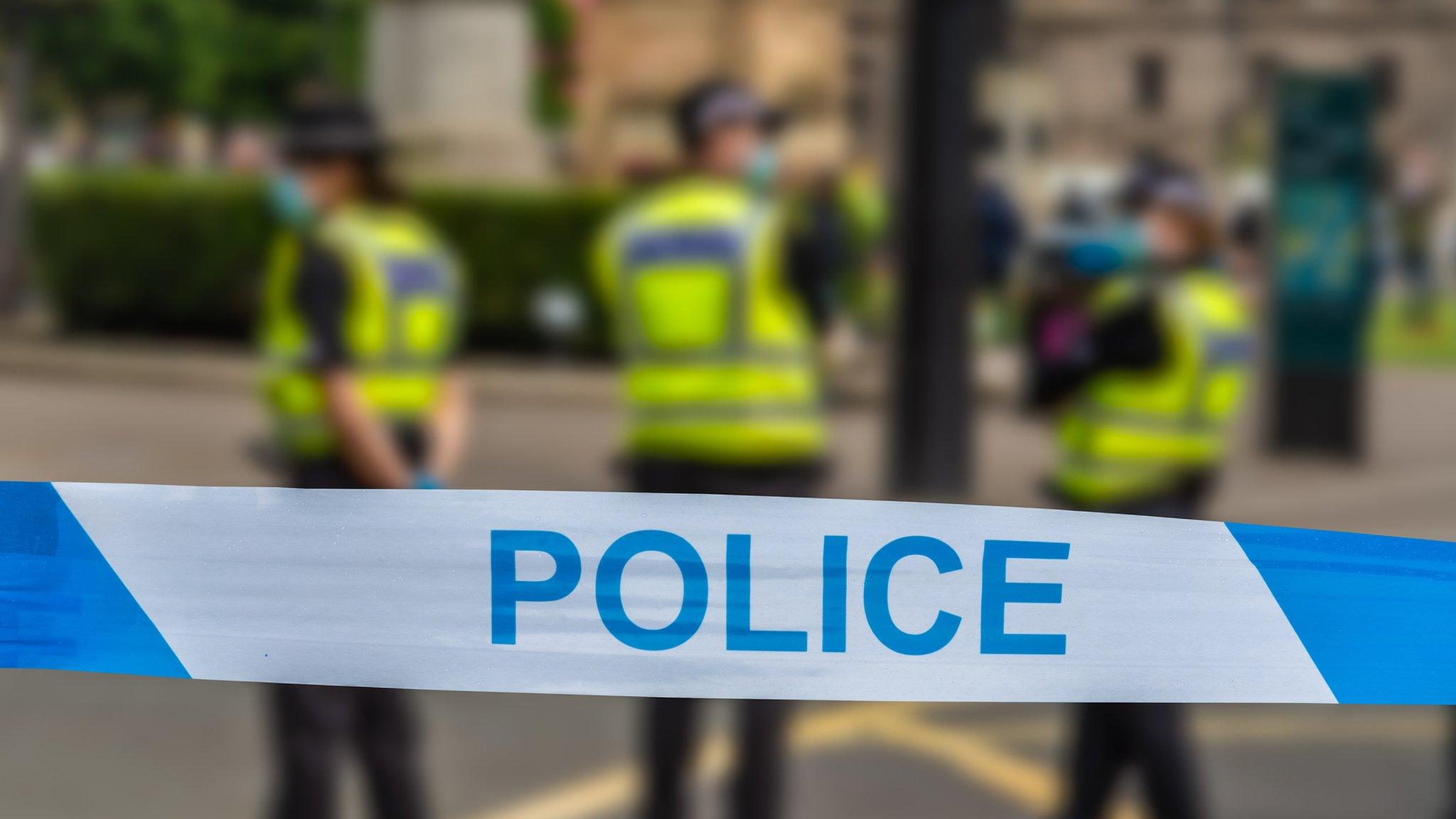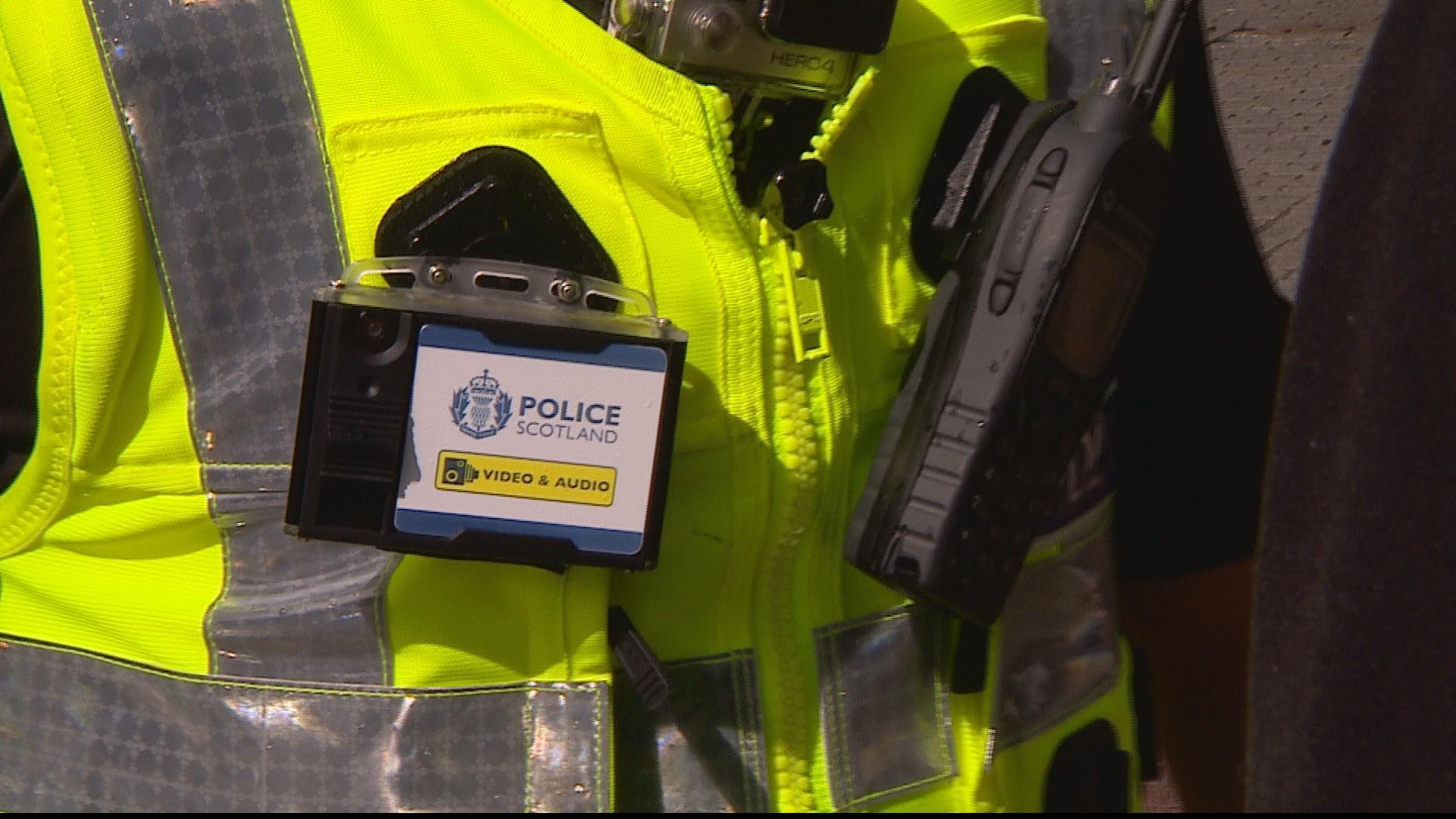Police body cams could see 'spike in guilty pleas'
- Published

The use of police body-worn cameras could lead to a "spike in guilty pleas" and reduce pressure on the courts, Police Scotland has claimed.
Ch Supt Matt Richards wants more than 10,000 officers and staff to have access to the technology to increase safety and accountability.
He said the cameras would also improve the quality of evidence from incidents and speed up justice for victims.
The technology has been in use in England since 2016.
Currently only officers in parts of north east Scotland have access to the torso-mounted recorders after they were tested there in 2013 and kept in use ever since.
'Irrefutable'
Police Scotland is now asking the public for their view on the cameras being introduced nationally, after a public survey in February showed strong support for armed police having the equipment.
The force has confirmed firearms officers patrolling the United Nations COP26 climate conference in Glasgow in November will have body-worn cameras.
Ch Supt Richards said the cameras would increase safety, as new figures showed assaults on police staff increased overall by 6.3% in 2020-21, with 6,942 attacks recorded.
He compared body-worn videos with road-side breathalyser tests, saying those tests led to more people admitting their guilt "because of the science, the irrefutable technology element".


The inquest into the terrorist attack which began in Fishmongers' Hall in November 2019 has been shown police body-worn camera footage of the moment the attacker was shot dead on London Bridge.
Had the incident happened in Scotland, it's very unlikely that such invaluable evidence would have been available.
At present, only officers in Police Scotland's north-east division have the cameras, a legacy of foresight shown by the old Grampian Police force. Eight years after it came into existence, Police Scotland are issuing them to 500 armed officers in advance of the Cop26 conference in Glasgow later this year, but as yet there's no timetable for a national rollout.
Contrast that to the situation in England and Wales. In a report to the Scottish government in 2020, examining the handling of police complaints, former Lord Advocate Dame Elish Angiolini noted that around 80,000 body-worn cameras were being used by police in England and Wales. They've been tried out by prison officers, ambulance crews and traffic wardens.
Dame Elish said financial constraints were stopping Police Scotland from buying more of the cameras. She recommended the force "accelerated" its plans for procurement. The force says further discussions on funding need to happen.
The Scottish government recently provided an extra £10m to help Police Scotland buy environmentally friendly vehicles.
With assaults on police officers rising, the case for funding for cameras is there to be made. Without it, there will be no "spike in guilty pleas."

Ch Supt Richards added: "British policing is about policing by consent and ensuring the public understands what we're doing, and gives us the authority to continue policing in that way.
"Whatever the public tells us, we will bear in mind in terms of how we run the programme."
He also said victims of crime could benefit from "increased speed and efficiency" in the criminal justice system, with a backlog in High Court trials not expected to be cleared until 2025.

Police body-worn cameras have been used in some parts of Scotland for many years but a national rollout has been delayed
He added: "We know there is a real spike in guilty pleas, which again reduces that congestion in courts.
"On top of that, complaints against the police drop off, which not only increases public confidence but also officer morale, and leads to greater efficiency, as every complaint by the public has to be investigated."
Asked about privacy and data protection concerns surrounding the disclosure of the footage, he said: "You can't just request footage and put it into the public domain.
"Not only is it overt, so everyone knows they are being recorded, but also they have to trust us to manage it properly.
"We will adhere to all of the necessary guidelines and data protection legislation."
Ch Supt Richards said officers would tell people they were videoing when they turn it on, which was often in itself a "preventative measure".
As well as frontline officers and staff it is hoped the technology can be rolled out to front-counter assistants and custody staff.
The three-month public consultation, external goes live on Tuesday.
'Increase transparency'
In March the Scottish Parliament's justice sub-committee on policing noted that "financial and structural constraints" were preventing the rollout of cameras to all frontline staff in Scotland.
Committee chairman John Finnie previously raised concerns about the force's roll-out of technology and called for "full transparency and due process".
Research across police forces in the UK and US in 2014-15, led by the University of Cambridge, found a 93% reduction in complaints against police due to the introduction of wearable cameras.
Academics suggested the awareness that encounters were being recorded helped modify people's behaviour and increase compliance with police.
Lead author Dr Barak Ariel said: "There can be no doubt that body-worn cameras increase the transparency of frontline policing. Anything that has been recorded can be subsequently reviewed, scrutinised and submitted as evidence."
Related topics
- Published30 May 2021

- Published28 April 2017
